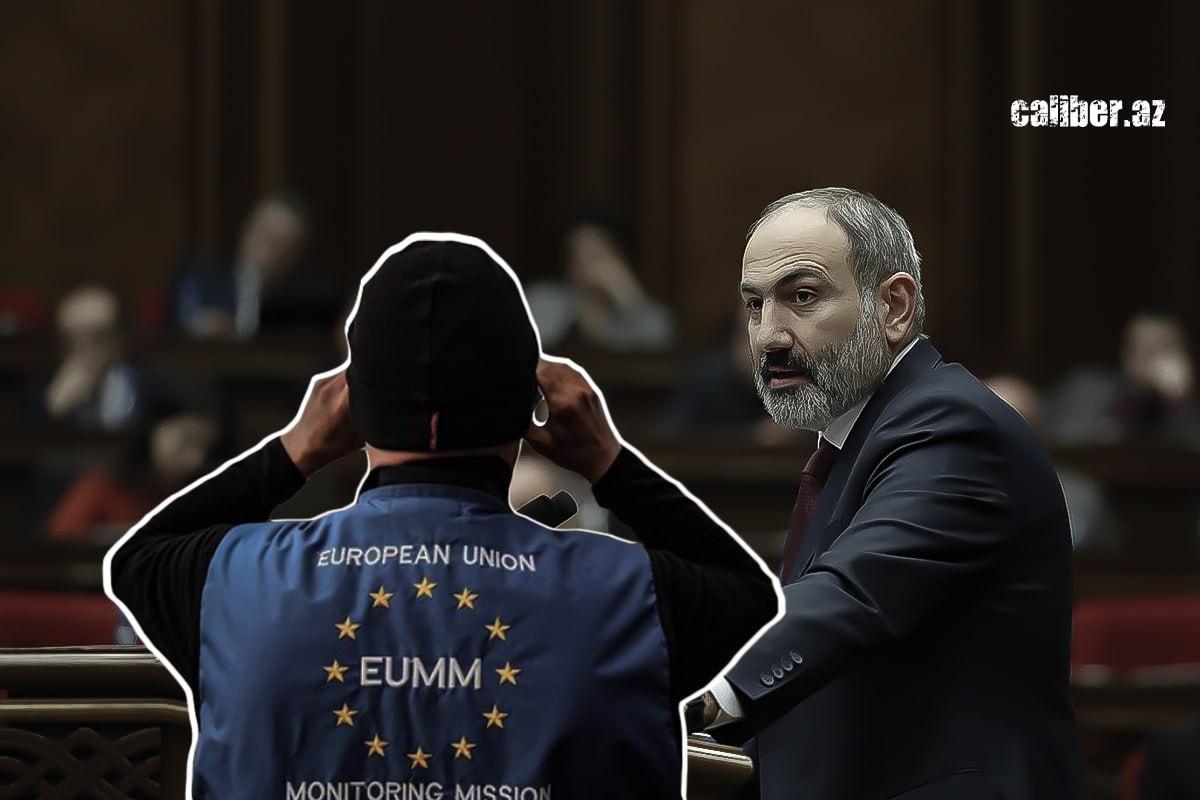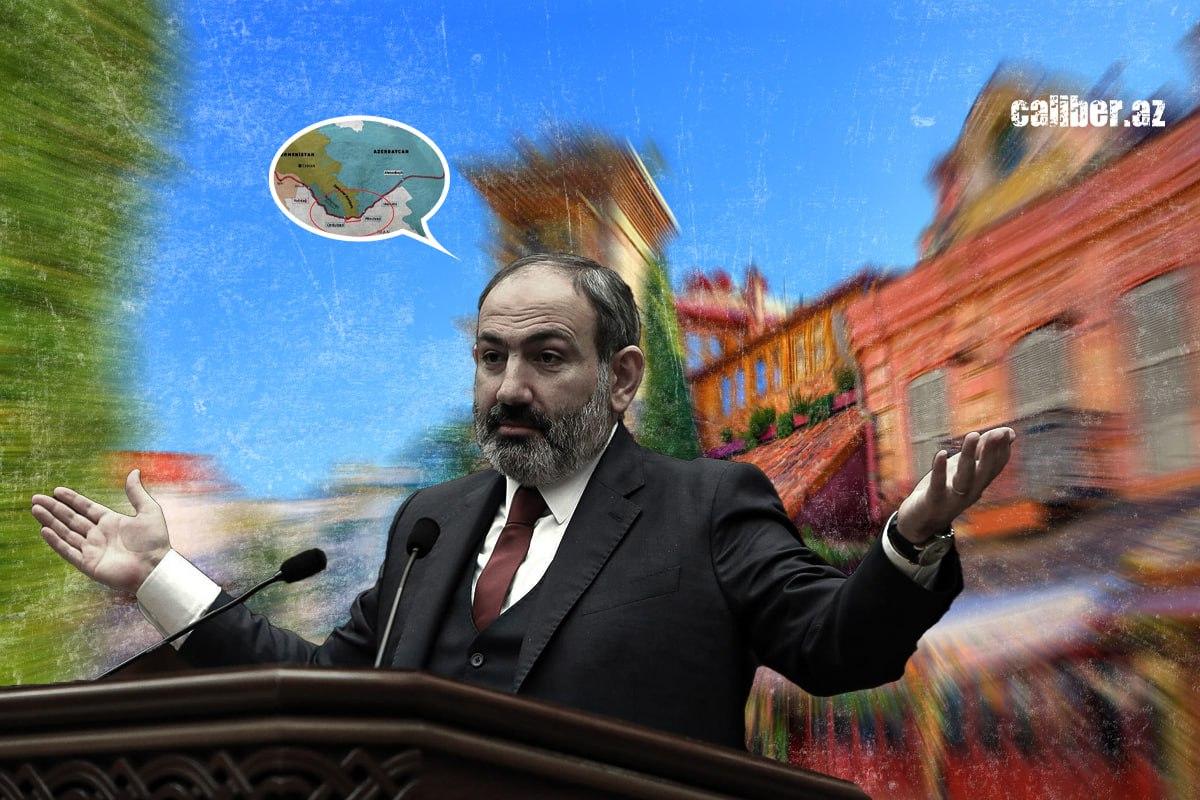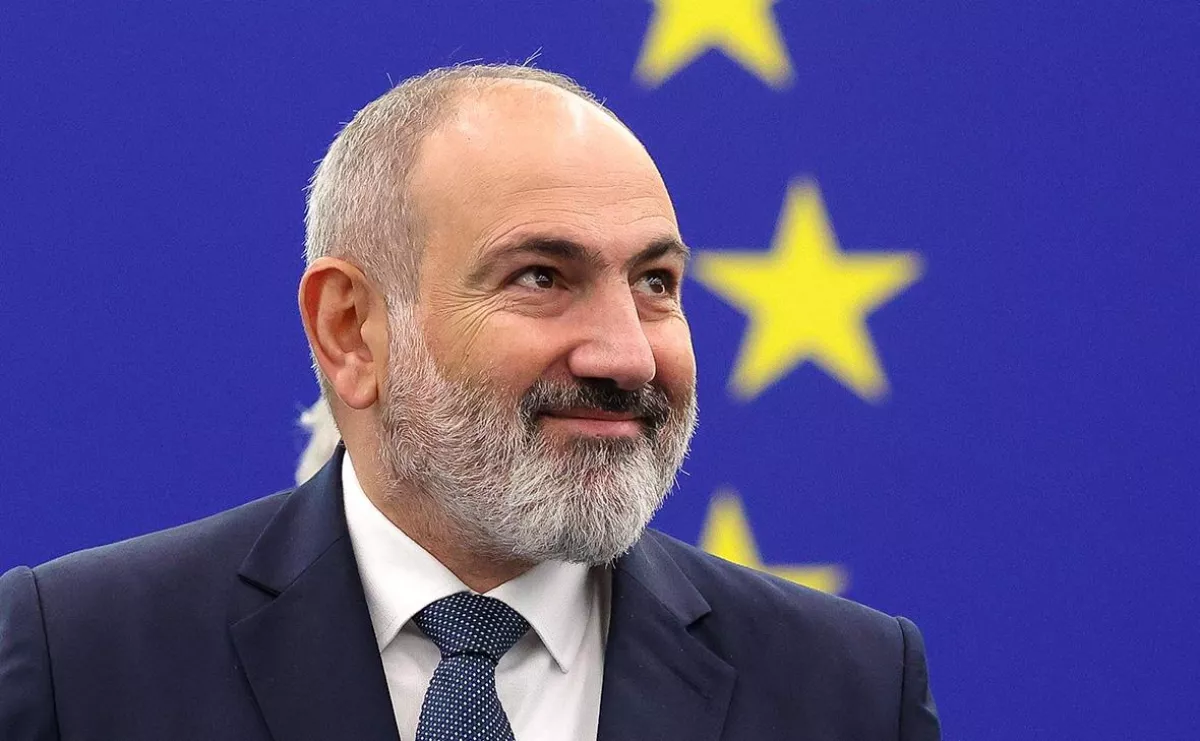Armenia's EU aspirations: Risky gamble for entire South Caucasus Prelude to regional conflict
In recent days, Armenian media have been expressing concern over whether radically pro-Western parties in the country will manage to gather the necessary number of signatures in time to hold a referendum on joining the EU. These parties are actual allies of Prime Minister Pashinyan, whose government is advocating for EU membership and is covertly establishing relations with NATO as a complement to the EU. However, Armenian citizens are hesitant to sign for the referendum, clearly doubtful about the wisdom of urgently joining without having established relations with their neighbours.
Indeed, there are compelling reasons to consider the implications of the European Union and other Western entities entering the South Caucasus under current circumstances for Armenia and the entire region. Many of these implications can already be anticipated by looking at the outcomes of similar EU expansion in other areas—specifically, Eastern Europe and the Balkans.
Features of national integration
In September, Armenia began negotiations with the European Union regarding a visa-free regime. Yerevan is trying to portray the initiation of talks to abolish EU visas for Armenian citizens as a significant step toward the country's EU membership. Over the summer, radically pro-Western parties allied with Pashinyan's "Civil Contract" demanded a referendum on joining the EU, conducted hearings in parliament while displaying the EU flag, and made loud anti-Russian statements. Now, they are gathering citizens' signatures for the referendum. Likely reacting to this political fervour, the delegation from Brussels issued a statement after the negotiations began, offering a diplomatic warning: "As the experience with other third countries has shown, this dialogue with Armenia will be a multi-year process."
The process of aligning with the EU goes beyond discussions about simplifying travel arrangements for Armenians visiting the EU for tourism. Interestingly, while summarizing the outcomes of the September meetings in Yerevan on the now-former Twitter, European Commission Vice President Margaritis Schinas highlighted military-related issues (disguised as "security support") as the second priority after "visa liberalisation." Only after that did he mention a "growth and resilience plan" and "people-to-people exchanges." This seems to reflect a carefully structured hierarchy of priorities.
Almost simultaneously, while travelling to Yerevan, then-French Foreign Minister Sébastien Lecornu made a similar remark, stating, "We support the development of strategic infrastructure [the specifics of which remain unclear but suggest military implications] in Armenia to ensure the country's resilience. We are also cooperating in the defence sector."

In other words, the Armenian government is not hesitating to ramp up military cooperation, which could provoke reactions from several neighbouring countries regarding this "khaki-coloured Euro-integration." Pashinyan continues to play a risky game. Firstly, the recent contacts with the EU involve extremely sensitive issues but lack impressive interlocutors at the negotiating table. Recently, he travelled once again to Paris, where he met with Macron—an increasingly outdated political figure who remains on the stage only through cynical manipulation of election outcomes and government appointments. In fact, Macron's Foreign Minister, Sébastien Lecornu, resigned immediately after returning from Yerevan.
Furthermore, the Vice President of the European Commission came to Yerevan to launch the visa negotiations—not exactly the most influential figure, but rather one "responsible for promoting the European way of life." Interestingly, this representative hails from Greece, another traditional ally of Yerevan within the EU. And yes, accompanying him was Luxembourg's Foreign Minister, Xavier Bettel, who was brimming with optimism: "Today we are strengthening relations with Armenia through the European Peace Facility, through negotiations over the launch of visa liberalization process, and this all shows our common values and projects."
As the saying goes, comments are unnecessary, especially since Luxembourg is taking the lead in Armenia's Euro-integration...
More promises from the EU
Secondly, by engaging in a perilous geopolitical gamble (for all parties involved), Pashinyan has failed to secure substantial material assistance from his future allies. Perhaps the promised visa-free access to the Schengen Zone is considered a sufficient incentive, but this seems like a questionable offer given the increasing signs of the zone's disintegration. Moreover, over the past two years of intense rapprochement with Brussels, the Armenian government has received from the EU assistance equivalent to the annual budget of an average Western European city. This, of course, did not faze the Vice President of the European Commission, who stated, "in collaboration with American partners, a new resilience and growth plan amounting to 270 million euros [over four years!] has been announced for Armenia, in addition to the 600 million euros already invested in the country."
There is also a military aspect to this engagement. In July 2024, the EU allocated Armenia the first tranche of €10 million from the so-called "European Peace Facility." It has been stated that this funding will be used "to enhance the logistical capacities" of the Armenian army through the procurement of a "deployable tent camp for a battalion-sized unit." Additionally, since February 2023, an EU reconnaissance mission has been operating in Armenia, which is effectively focused on military issues—specifically, the situation at the border with Azerbaijan.

The mission's background is quite telling: it initially operated for two months under an agreement between Azerbaijan and Armenia, a logical arrangement given that border issues affect both countries. However, its activities later continued solely based on an agreement between Yerevan and Brussels. This shift once again undermines the claims made by Brussels bureaucrats about the EU's impartial approach to South Caucasus issues and its commitment to engaging with all parties involved.
In Yerevan, there is evident satisfaction with the EU's potential to be leveraged in the continuation of the "neither war nor peace" policy towards Azerbaijan. Armenian leaders frequently express positive sentiments about the mission's work.
Overall, the balance of Armenia's rapprochement with the EU has proven to be contradictory. It's no surprise that some doubts are creeping into the leadership in Armenia itself. Speaking at the II Global Armenian Summit, a gathering of diaspora activists in September, Prime Minister Pashinyan once again addressed the issue of EU membership, but urged caution: "we must understand that this is not a one-way action, and it’s not even a bilateral one. This is where we should be very attentive in wording the objectives in order not to cause new disappointment among our people on the path of solving those objectives. We should also physically imagine Armenia’s membership to the EU. The Georgia-EU ties are highly important here, the development of Türkiye-EU ties is highly important too. And in this context, it is very important how the Armenia-Türkiye relations will develop."

Given that Armenian leaders clearly see that progress with the EU is stagnant, Pashinyan loudly discussed integrating his Crossroads of Peace project with the Middle Corridor initiative and China's Belt and Road Initiative over the past weekend. Additionally, Secretary of the Security Council Armen Grigoryan insisted that Armenia has not even discussed with Russia the transfer of full control over its borders with Türkiye and Iran!
From open borders to military fortifications
Speaking at the aforementioned event with diaspora activists, Pashinyan asserted that rapprochement with the West should not lead to heightened tensions in the region: " We should not, under any circumstances, oppose our democracy to our region, our regional policy." Indeed, looking at the experiences of other regions, such as Eastern Europe or the Balkans, the arrival of the EU (along with other Western structures, primarily NATO) has yielded, to say the least, controversial results, sometimes leading to clashes of interests among powerful players and even genuine catastrophes.
There is a significant difference between the process of Euro-integration before and after the West's victory in the Cold War. Prior to 1989, it was primarily a contractual process with minimal ideological underpinnings and metaphysical musings about "the borders of Europe." Economically viable countries sought compromises based on practicality rather than some mythical "civilizational belonging."
Everything changed in the late 1980s. Euro-integration increasingly began to rely on ideological tenets of liberalism and a constructed "European identity" (whether innate or implanted). New countries were incorporated into the union not through genuinely reciprocal agreements but by meeting "European standards." Perhaps this was unavoidable—after all, it would be impractical to revise legal norms for each new member. However, what was the point of accepting such a diverse array of countries if it fundamentally transformed the union itself?
The EU ended up including many structurally weak states with declining economic structures and demographic challenges, while applications from dynamic countries like Morocco and Türkiye were rejected for completely contrived reasons. This is understandable; those countries would not have allowed the same level of control over them as some of the newer EU members. Additionally, racism played a role in the decisions made regarding membership.
In other words, Brussels initiated a genuine expansion into new regions, reshaping them to its liking. This has led to the fragmentation of historical regions that have existed for centuries. EU propaganda often touts the creation of a "Europe without borders" and the unprecedented freedom of movement it provides. However, in Eastern Europe, it has established borders and increasingly insurmountable visa barriers, even in places where none existed historically, such as the Belarus-Lithuanian and Belarus-Ukrainian borders. Now, Brussels is even funding the construction of military fortifications along these new borders.
Will things be different in the Caucasus? The "Collective West," including the EU, has already made it clear that it does not intend to engage with the South Caucasus as a cohesive, historically established entity. Instead, there have long been noticeable trends toward the political "dissection" of the region and intrigues aimed at weakening the negotiating positions of its countries. Therefore, Armenia's Euro-integration may not lead to the opening of communications; on the contrary, it could result in the establishment of visa barriers.
The situation could become absurd, with Georgians needing to obtain Armenian visas, while Armenia's borders with Azerbaijan see even more fortifications, weaponry, and troops. You might think this is far-fetched, but Belarusians once thought similarly after the collapse of the USSR. They watched the Euro-integration of their Baltic neighbours with a carefree attitude, only to find themselves facing EU borders now bristling with anti-tank hedgehogs. Today, they can cross those borders only with a rare visa, enduring increasingly infrequent bus rides (trains have long since ceased operations, and private cars are banned) and facing humiliation and insults from officials of the "new Europeans."
Outcomes of Euro-integration
But has Euro-integration brought happiness to the "new Europeans"? This is doubtful, as it has led, over recent decades, to a decline in industrial policies that prioritize national interests. New EU member states often receive subsidies that fail to stimulate economic growth. In fact, nearly all minimally qualified working-age populations from these new member states seek opportunities to work in "old Europe" at the first chance they get.
This trend has resulted in record population declines in the Baltic states, while other countries in the new Europe have managed to soften the blow through the influx of migrants and refugees from Ukraine. According to estimates made prior to the Russian-Ukrainian war by the UN and the World Bank, nearly all "new" EU members (with the exceptions of the Czech Republic and Slovakia) rank among the global leaders in population decline. The top three spots are held by Bulgaria, Lithuania, and Latvia, whose populations are projected to decrease by more than 20% by 2050. In comparison, estimates from last year suggest that the populations of Germany and Russia will not see a decline until at least 2030.
Last week, notable results from a survey of residents in Estonia were published, revealing a landscape of grim expectations. More than a third of Estonians fear they will not have enough money for a decent life after retirement, with 70% believing their standard of living will significantly decline post-retirement. Additionally, 39% of respondents anticipate that their savings will be devalued by inflation. According to official data, 32.5% of individuals in the appropriate age group continue to work after reaching the age of 65. This is particularly concerning for a country often hailed as an example of near-ideal integration into the EU, which also benefits financially from its coastal location by facilitating Russian transit.

Let’s highlight another, possibly even more significant aspect of the potential consequences of Armenia’s separate Euro-integration with the EU. As the history of EU expansion shows, EU membership is now inseparable from NATO membership; both have become parallel processes. The arrival of NATO in a region often leads to militarization.
In recent decades, the "new Europeans" have been the leaders in increasing defence spending. For instance, at the end of September, Estonia's Prime Minister announced plans to raise defence expenditures from a record 3.4% of GDP within NATO in 2024 to 3.7%, with the Minister of Defense even suggesting a target of 4%. According to Prime Minister Kaja Kallas, "The current NATO benchmark of 2% of GDP for defence investments is too low. If we want Europe to be taken seriously, this figure should be raised to at least 2.5% or 3% of GDP at the next NATO summit in The Hague."
Rather than focusing on genuine security needs, countries are transforming into "bastions of the bloc" in opposition to neighbouring states. For elites in these new member states, it sometimes becomes advantageous to adopt the role of frontline nations, escalating the hysteria of imagined threats to secure funding from Brussels and other Western capitals.
Moreover, NATO membership has allowed Eastern European countries to leverage the alliance as a cover in their political manoeuvres in the region long before the Russian invasion of Ukraine. This militarization of Eastern Europe has occurred alongside the buildup of Russian military power, a topic many prefer to avoid discussing, ultimately leading the region to conflict. There are compelling reasons to believe that influential political forces in Armenia, including Pashinyan's party, would like to follow the path of Eastern European EU members toward NATO. The hypothetical consequences of this trajectory would likely mirror those seen in Eastern Europe.
In conclusion, Armenia's EU membership remains a distant prospect, as Pashinyan has yet to broaden his circle of allies among EU member states, with France, Greece, and a few smaller nations still being the primary supporters. This has led to Pashinyan's uncertainty regarding his next steps, including the possibility of holding a referendum on EU accession. However, the risks associated with Armenia's potential membership in the EU and other Western structures for regional security—let alone stability and future development—should not be underestimated.
These consequences are inevitable if the accession process proceeds without a prior resolution of Armenia's relationships with its neighbours, Azerbaijan and Turkey, and without restoring the historical unity of the South Caucasus through the re-establishment of communication networks.
Conversely, if Brussels and Yerevan attempt to pursue European integration without normalizing relations in the region, it is certain that Armenian elites will seize their rapprochement with the EU and NATO to strengthen revanchist sentiments. They will undoubtedly find partners in Brussels and the broader "collective West," where there are irresponsible politicians eager to work with Armenia, potentially turning the South Caucasus into a battleground for global and regional powers, regardless of the consequences for its peoples. Azerbaijan will certainly be able to mitigate many negative outcomes of such a scenario, but the entire region will inevitably suffer from these intrigues, as time and resources that could have been used for joint development will instead be wasted on countering them.








